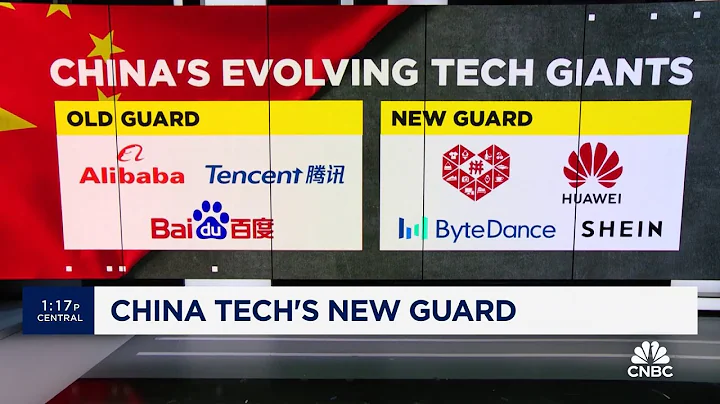Tip: Read this article for about 3 minutes!
Since 2020, Chinese Internet giants Alibaba , ByteDance, Tencent , and iQiyi have successively announced the establishment of regional headquarters in Singapore as a bridgehead to the international market.
These Chinese "big factories" have entered Singapore in a large scale, which has stimulated the flow of Singapore's talent market and set off a "talent war". Money is indispensable for robbing people!
Taking money to clear the way is a routine operation of "big manufacturers"!

(Picture: from the Internet)
In February this year, Byte's TikTok established 800 positions in Singapore; Alibaba's online shopping platform Lazada had 300 vacant positions.
Tencent is also recruiting heavily for more than 100 positions such as business development managers, product design and operations managers , data analysts, and software engineers.
According to data from the technology industry job matching website "NodeFlair", the salary packages offered by Chinese "big companies" stationed in Singapore are usually higher than the general industry standards.
Taking the position of a newly graduated junior software engineer as an example, the starting salary in the industry is only S$3,000, while the starting salary for a similar position at Tencent is as high as S$6,800, and the starting salary for a similar position at TikTok is about S$6,596. An intern at the company The salary also reaches S$4,800.
Taking the position of a senior software engineer as an example, the starting salary at Alibaba's Lazada is about SGD 7,000, and the starting salary at TikTok is as high as SGD 10,000, while the general starting salary in the industry is only SGD 5,250.

(Picture: from the Internet)
The strong demand for talents in the technology industry has pushed up the starting salaries of graduates in related majors. Take the computer science graduates of the National University of Singapore last year as an example. Their basic salary median As high as S$5,800, an increase of about 30% from five years ago, surpassing graduates of medicine and law majors in traditional high-paying fields, ranking first among major majors.
In order to meet the industry's demand for technological talents, the number of undergraduate courses in information and digital technology offered by Singapore's public universities will increase to 3,100 in 2020, which is approximately four times the number in 2010. The proportion of places in this subject in the total number of undergraduate places has also increased from 7% 10 years ago to 17% the year before.
While targeting Singaporean university graduates, China’s “big companies” will also poach high-paying recruits from other companies through headhunting.
A Singaporean Internet headhunting company said that in the past three or four years, salary levels in the entire Internet technology industry have indeed been raised a lot. This is a boost for the entire industry, not just because of Chinese companies. American Internet giants like , Google , have higher salaries than Chinese companies.
But it is undeniable: like other foreign companies, the entry of Chinese "big manufacturers" into Singapore has brought more competition to local companies.
In addition to salary reasons, some people are also optimistic about the "gold-plating" effect that China's "big factory" Internet companies can bring to personal resumes.

(Picture: from the Internet)
These Chinese "big factories" themselves are very attractive to job seekers. They can add value to their work experience and enrich their resumes through such platforms.
Competition in the talent market is not only reflected in salary, but also includes bonuses, training, skill improvement, flexible work arrangements, interesting projects, and senior titles.
The war for talent set off by the Internet technology industry has spread to many industries and even affected some multinational companies that were originally popular with job seekers.
However, life in China’s Internet industry has not been easy in the past two years. In particular, the wave of layoffs that began at the end of last year has exceeded previous years. Many leading companies such as Kuaishou, ByteDance, and Alibaba have been exposed. Large-scale layoffs.
Some analysts pointed out that it is a general trend for Chinese technology companies, especially Internet companies, to expand into Southeast Asia. The data privacy issues involved in Internet companies and Chinese official supervision of capital have accelerated this trend. Singapore, with its well-established system, has become a very A natural place to stay.

(Picture: from the Internet)
However, not everyone can accept the pace of China’s “big factories”.
First, the work rhythm is wrong, and second, the company culture is not suitable.
Due to the need to communicate with the headquarters at work, the working hours are basically synchronized with the China headquarters. Daily work meetings are often scheduled to start at 7 after dinner. Many meetings have no framework or timetable, and the topics extend indefinitely, often lasting until 9 or even 10 pm.
The overtime culture and wolf culture that were once popular among Chinese Internet companies have been criticized in recent years. After Chinese officials proposed "correcting the overtime culture and ensuring decent work for workers" last year, Internet companies including ByteDance, Kuaishou and other companies have started to Cut back on mandatory weekend overtime.
The Singapore branch’s working hours are not “996” (9 to 9, six days a week), but the arrangement of meetings after dinner is a disguised form of taking up personal or family time.
has to attend various group meetings or review meetings every night. When the family needs someone to take care of the children the most, he is nailed to his desk, listening to the children outside crying and making trouble, and he can't do anything to help.
The vision of a "big factory" is certainly wonderful, but if you have to make such a big sacrifice on your family... you need to think about it!
Perhaps this is more suitable for young people who have not yet started a family to try their luck...

(Picture: from the Internet)
I am a sea sheep. I record and share interesting conversations about temperature, height and degree in Singapore and around the world every day. , follow me and stay informed about reliable local information in Singapore!
If you like the content and look forward to your forwarding, please also leave a message in the comment area for interaction! Thanks!
The material, opinions and part of the content of this article come from the Internet. If you think it has infringed on your rights, please contact us to delete and correct it in time.





















